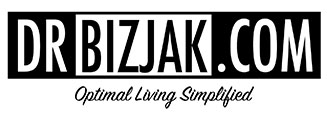Our healthcare system has become less concerned about health outcomes and more about profits. This has led to a decline in the overall health of the general public and an increase in the cost of healthcare. Last week, I shared how hospital systems are profit-driven businesses viewing you as a customer more than a patient. There are two other areas to pay attention to that are driving this catastrophic shift from patient-centric care to a profit-driven business enterprise.
I have written many blog posts on the pharmaceutical industry. While most people are often surprised to see behind the curtain of the hospital systems and health insurance companies, just about everyone will agree that Big Pharma is corrupt, greedy, manipulative, and dangerous.
One thing that is eye-opening to many people, as it was for me, was the realization that the large pharmaceutical companies are public companies. When a company has shareholders, they have an obligation to those shareholders. That obligation is to improve the value of their stock, so that the shareholders make more money. The obligation is NOT to the doctors prescribing the drugs, it’s NOT to the pharmacies dispensing the drugs, and it surely is NOT to the people consuming the drugs.
When your commitment becomes about increasing profits, things like safety, effectiveness, and affordability get moved to the back burner. The drive is how to make more money, how to get more doctors prescribing your pharmaceuticals, how to design studies that support the effectiveness of the drug, how to downplay the adverse effects of the drugs, how to create advertising campaigns that entice the public to ask their doctor about the drug, etc.
I pointed out in last week’s blog that the Monday morning meetings in hospital systems do not involve questions about maximizing the well-being of patients, improving the overall health of the community, and saving more lives. Likewise, these pharmaceutical companies are not seeking ways to save the planet or boost the overall health of the communities. They start by asking what condition is most popular. What ailments can we capitalize on? What areas of health would be the most profitable?
I would be silly to think that a public company should ignore profits and gains, but the issue with Big Pharma is that their profits and gains (which are astronomical) are made at the expense of honestly, transparency, and people’s lives. These companies have been found guilty of major criminal activity, including bribery, falsifying data, pushing drugs for conditions they were never tested for, Medicare fraud, and much, much more. According to Public Citizen, “From 1991 through 2017, a total of 412 settlements were reached between the federal and state governments and pharmaceutical manufacturers for a total of $38.6 billion. For 2016 and 2017, 38 settlements for a total of $2.9 billion occurred.” Wow! We’re talking not just millions of dollars, but BILLIONS of dollars.
I suggest watching the shows Dope Sick (on Hulu) and Painkiller (on Netflix). These shows highlight the opioid crisis and how it came about. You get a look into the playbook of Big Pharma, how they manipulate data, influence the government, make up studies, and bribe medical doctors. It is important to see it for what it is because that same playbook has been used for decades (the Vioxx scandal that killed tens of thousands), is currently being used (the COVID vaccine and weight loss shots), and will surely be used in the future.
Are all medicines bad? Of course not. Are all pharmaceutical company employees evil. Nope. Do we sometimes need medicines for some things? Yes. Should you be “anti-medicine?” Absolutely not. But being aware of the business of medicine, the relentlessness of Big Pharma, the shady history of the pharmaceutical industry, and how these entities operate is a very wise thing to do. Profits have been put before safety. Data has been skewed to get medicines approved. And lies are being told to sell more drugs. It’s shameful, but this all adds up to one more way that profits interfere with your healthcare.







